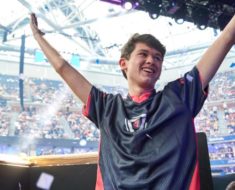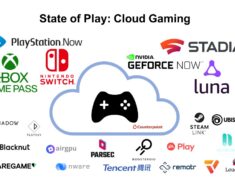After the DLC releases and mobile port of Cultist Simulator, along with localising the game to both Russia and China, the game received nominations for two BAFTA Awards, won three Develop Stars, and found out that Gabe Newell was an admirer. These were big developments, and they helped developer Alexis Kennedy and business partner and collaborator Lottie Bevan start making plans for the future.
Their next projects were to be more substantial, ambitious games than Cultist Simulator, as well as two projects developed in tandem. This meant that Weather Factory needed to hire its first employee. As an extremely small studio, the company knew they needed to choose someone who could provide complementary skills, could handle their workload largely on their own and could bring diverse thoughts, opinions, and ideas to the company.
The company’s first hire, then, was a PR and marketing specialist, as there was simply too much to be done. The company then also hired a Unity and UI specialist, as well as someone who could help the group with internal tools to speed up workflows and get moving on the new project. They were also looking to hire a writer as well, but after these hires, they found themselves running a small, yet majority-female, development studio.
In order to ensure that their Unity hire would actually be able to deliver on their promises, Alexis and Lottie had each potential candidate build prototypes for their day-rate for one half-day, which both built trust and allowed the team to have real code samples to work from in order to compare potential hires and make this key decision right.
As they hired, they also set out to create a company culture that was honest, open, and transparent. This meant guaranteeing a policy of no crunch time in order to avoid the damage to the company that prolonged over time has been proven to do, publishing salaries internally in order to hold all parties accountable and prevent imbalances, and pooled profits to motivate employees and allow everyone to benefit in the event of business success. Finally, they gave each team member the right to take five days off, with zero notice, each year. Though these lessons may not prove scalable, they did help the small studio build a healthy working environment.
Beyond the hiring process, Weather Factory wanted to pay their success forward after Cultist Simulator performed as well as it did.
Alexis thought back to how when he got started in the games business, he had no one to mentor him and help him learn quickly or navigate difficult situations. His giving took the shape of a formal mentoring process, during which they selected five mentees, who must be developers working on commercial products. They were each given a meet and greet call or lunch with the Weather Factory team, the opportunity to create marketing plans, production plans, and narrative and design improvement sessions, and access to the company’s networks and connections as needed to help them connect with publishers.
Lottie’s project was Coven Club – a regular monthly get-together designed to provide an environment for women in the games industry – as well as Wings Fund, a venture that funds diverse teams creating projects. She also built a list of salaries for people working in the UK games industry with the intention of creating a master list to help people breaking into the industry or negotiating their next role command the salary that they deserve, as well as to help development studios better understand what their employees should be paid.
Weather Factory also partnered with Ubisoft’s Open Innovation partnership program, where indies and Ubisoft share experiences in exchange for assistance, advice, and guidance. Alexis spoke at events including GDC, Disco Montreal, Develop, GameDev.lv, Devspace London, and more,
To read more recent news about Alexis Kennedy and Weather Factory, click here.
Dil Bole Oberoi





